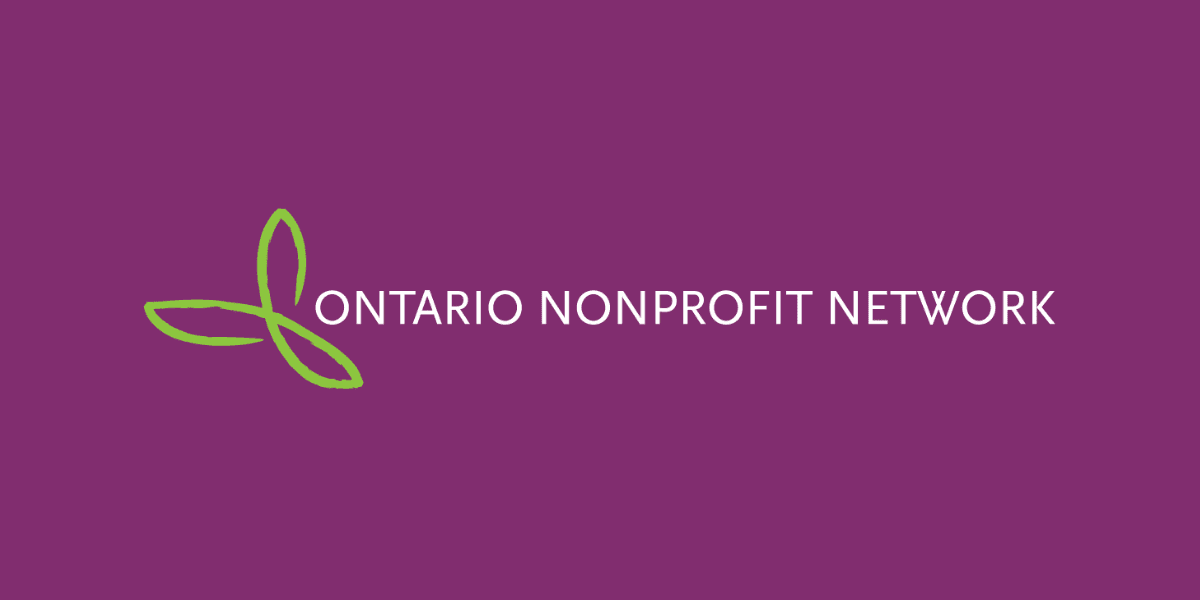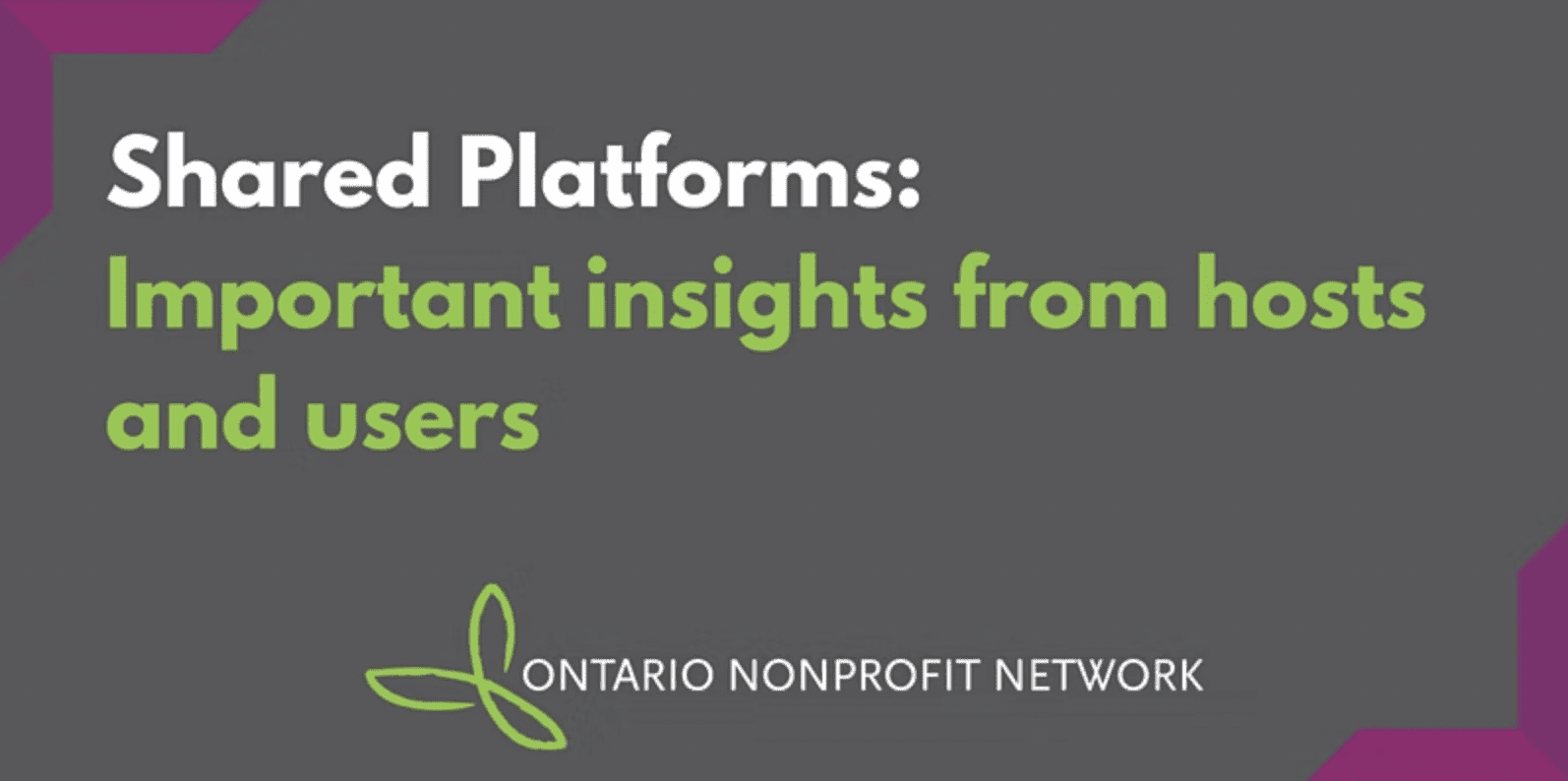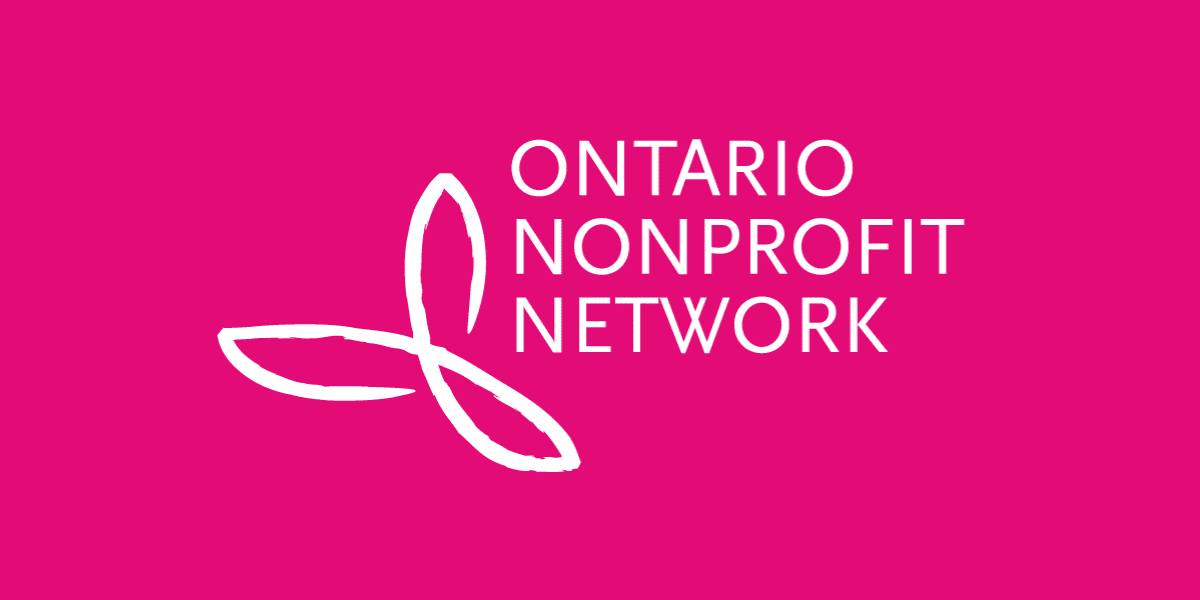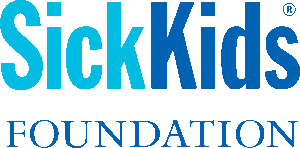Shared platforms
Almost every nonprofit got started when a community identified a need and did something about it. Established nonprofits and charities can support these and emerging grassroots projects through shared platforms.
What is a shared platform?
The shared platform is an innovative model for emerging projects that fosters collaboration and eliminates administrative barriers, allowing projects to focus on their community work. The term shared platform is commonly used to describe a situation where an organization hosts and provides a legal home for a project or initiative that is unincorporated and does not have its own legal status.
The shared platform model offers an alternative to incorporating or obtaining charitable registration in the nonprofit sector. In its simplest terms, the shared platform is an efficient sharing of capacity and nurturing of emerging leadership, and it allows innovative projects to achieve extraordinary impacts in communities across Canada. Working with our communities and adapting to meet changing needs is essential for the renewal of our sector.
Want to know more? Download the Shared Platforms Toolkit
The shared platform toolkit was created to support shared platforms to thrive. It includes eight practical tools to help organizations and groups (or projects) create good shared platform practices.
Learn more below or download the toolkit!
Shared Platforms: Benefits
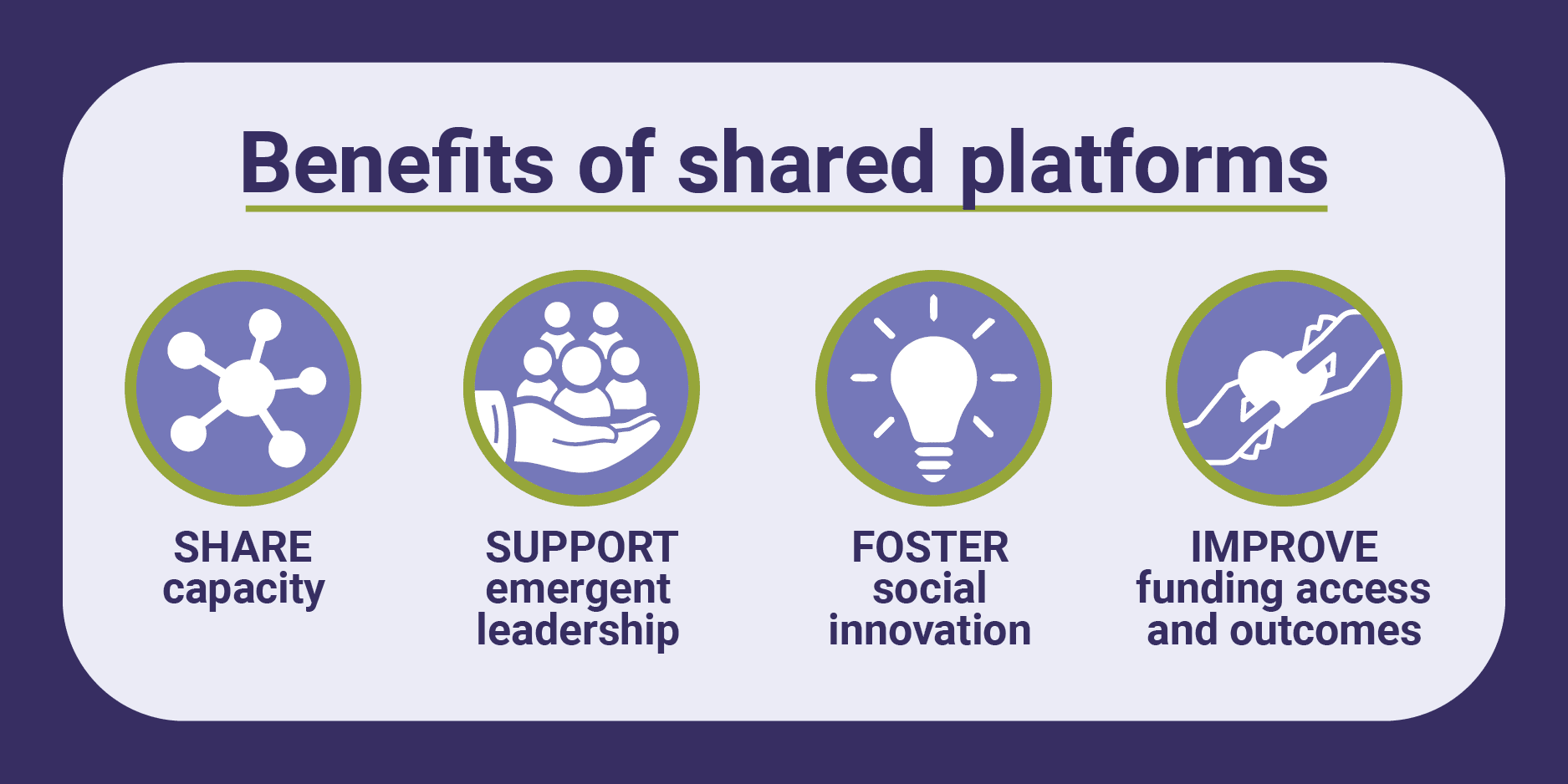
For an unincorporated project:
It’s a way to tap into existing support and infrastructure (e.g. policies and procedures, human resources, finance, insurance) and offers an alternative to incorporating or obtaining charitable registration to access funds.
For an organization acting as a shared platform:
It’s a way of working with communities and adapting to meet changing needs. It allows the host organization to share its capacity, nurture and learn with emerging leaders.
For the nonprofit sector:
Shared platforms are an essential building block in creating a more supportive environment for nonprofits and community members to lead the way and assist their neighbours and communities, particularly in the post-pandemic era.
For a funder:
It’s one way to increase access to funds for community driven initiatives and emerging groups who are addressing service gaps or testing new ideas, but are not independently incorporated.
For examples and success stories, see ONN’s Shared Platforms: An Introduction.
Shared Platforms: Tips and Tools
We heard how important clear expectations and shared understanding are for shared platforms to thrive. Here are some tips and tools to help create good shared platform practices in the nonprofit sector.
Is a shared platform for you? (For organizations + grassroots groups)
Be sure that joining a shared platform or becoming a platform is right for you!
For the host organization consider:
- Why do we want to become a shared platform? Get clear on the purpose of offering a shared platform.
- Are we ready to work in this way? Is your organization willing to adapt practices, build relationships and share decision-making while holding the legal and due diligence responsibilities?
- Is everyone ready? Do the board of directors, management and staff understand what it means for them?
- Do we have the right skills and capacity? A shared platform is administratively complex and requires dedicated staff time and expertise to be successful.
For the project consider:
- Possible benefits to joining a shared platform:
- Community impact from working with an experienced organization
- Access to existing administrative systems and expertise
- Access to additional supports offered by the shared platform
- Reasons to avoid joining a shared platform:
- Saving money
- Responding quickly to a funding opportunity
- Out of a sense of obligation to a funder or partner
Find the right shared platform relationship
Successful shared platforms have so much to do with relationships and trust. Both the shared platform and the projects are sharing decision-making and taking risks by working together. Making sure everyone understands one another’s vision, values, expectations and responsibilities will help ensure a positive experience.
Here are a few things to keep in mind before taking on a project:
- Mission alignment: Do the project’s values and vision fit with your organization’s mission and values? Do our activities and/or are the communities we serve aligned?
- Legal status: Do the project’s activities fit with your legal status? E.g. for a registered charity, are the project’s activities charitable?
- Size and budget: Does the shared platform have the capacity to support projects of this size and budget?
- Administration and operations: Does the shared platform have the knowledge and capacity to meet the project’s needs? Are you able to meet the project’s insurance coverage and human resource needs?
- Communications, digital infrastructure, and IT: Are the systems in place to communicate and manage project data?
- Funders: Who are the project’s current and potential funders? Does this have any implications for the host organization?
- Cost: Is there funding or a revenue strategy in place to cover the cost of supporting this project?
- Agreement: Is there a shared platform agreement with clear roles and responsibilities? (see [Shared Platform Agreements] for templates and good practices for an agreement)
- Learning and mentorship: What are the project’s learning goals and needs? Is the shared platform able to provide this type of support? What is the project hoping to learn from us? Is this something the shared platform is willing to share?
- Additional offerings: Are there other project needs? Is this something you can offer? E.g. shared space, access to photocopiers, digital tools and memberships.
To learn more and for sample questions to ask a potential project or shared platform, read the toolkit.
Good practices for shared platforms
You don’t need to develop good practices alone! ONN has several resources to help you:
- ONN’s Shared Platform Guidebook provides a detailed breakdown of good organizational practices.
- ONN’s Shared Platform Toolkit includes:
- Shared platform information for boards of directors [page #13]
- Shared platform agreement [page #11]
- Communication and evaluating the relationship [page #14]
- Ending a shared platform relationship [page #15]
In the meantime, here are some quick tips to get you started:
- Ensure you have dedicated staff to support projects.
- Put a clear agreement in place so that everyone understands their roles and responsibilities.
- Develop a schedule for regular meetings, problem-solving and checking in.
- Invest in the relationship so that everyone is learning, issues are identified early on and there is a shared understanding of how to work together.
- Ensure your processes reflect project needs. Are the processes accessible for project leaders to follow? Are there places to simplify or shift what you do? Build in ways to receive and integrate feedback.
- Learn from other organizations who are developing their shared platform practice to share resources and troubleshoot issues.
Why ONN supports shared platforms development
Shared platforms are an important innovation in governance for the nonprofit sector. They provide concrete benefits for the nonprofit sector, communities, funders, and governments. With the increasing complexity of social and economic issues facing communities and the pace of change, we need the nonprofit sector to be nimble, agile and responsive.
Shared platforms can support a wide range of projects and community-led initiatives, to nurture local emerging leadership, maximize time and efforts, and encourage risk-taking and experimentation to meet the challenges and opportunities facing communities.
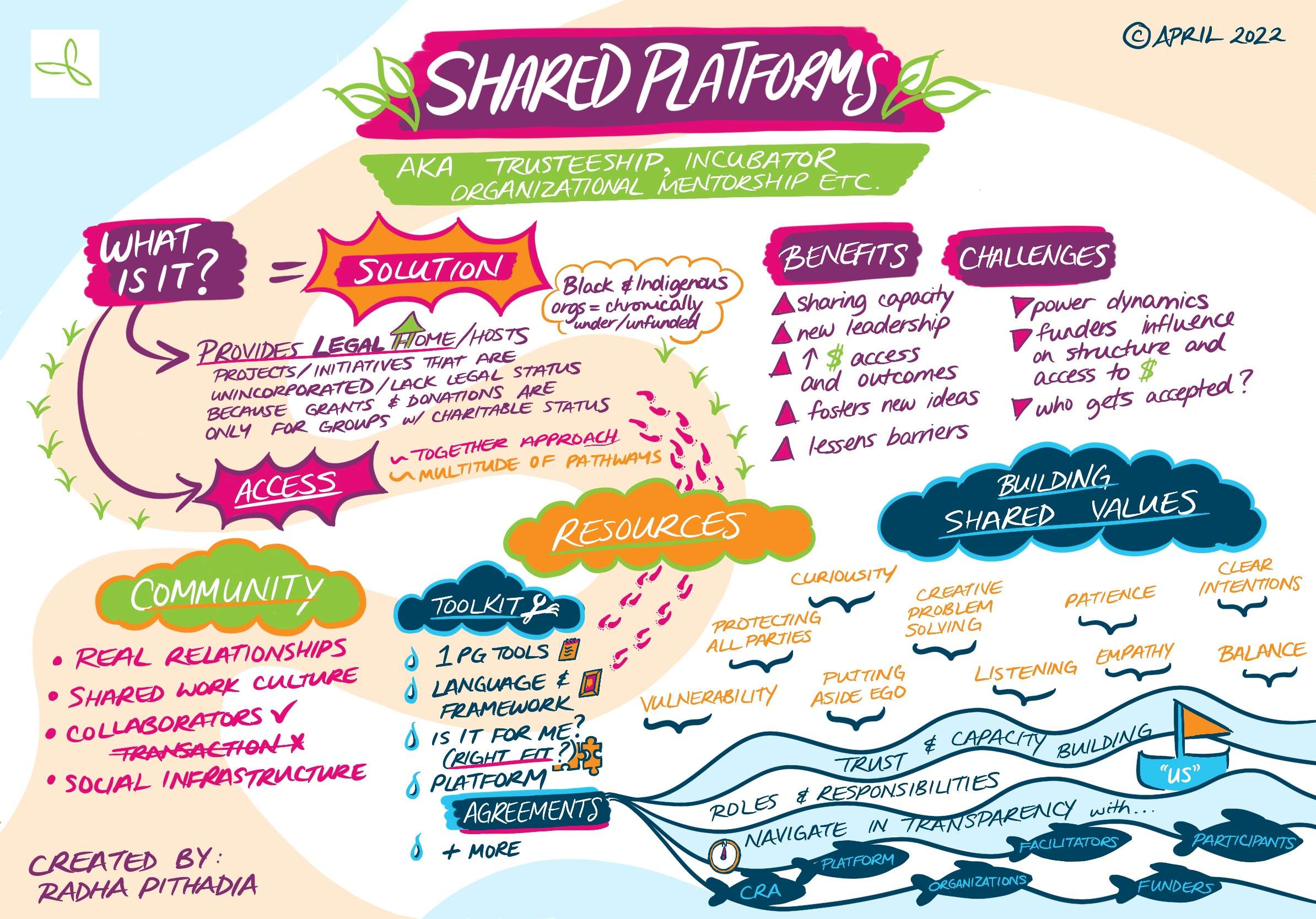
Acknowledgments
ONN is grateful to the many Shared Platforms practitioners, supporters and legal reviewers who participated in key informant interviews, focus groups and who provided thoughtful feedback on this resource. We appreciate the research and writing expertise of Jillian Witt and Openly. Thank you to the City of Toronto for its generous support of this project.


